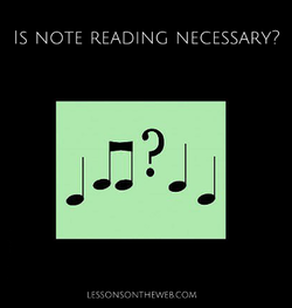|
How many times have you heard someone say, "Oh, I can't play the piano because I can't read music," "or I can pick out a tune here and there, but I'm not serious because I don't play with music."? Or the other side... "I can play anything on my keyboard, and don't want to learn how to read music: there's no need." Does it really make a difference in your ability to play the piano if you can't read music? One of the greatest Jazz Pianists and composers of all time, Dave Brubeck, couldn't read music. If you click on the link above, you can hear his music while reading the rest of this blog...he's amazing. (Sadly, Brubeck passed away in 2012 from heart failure). Some other famous musicians that can't or couldn't read music are -
...just to name a few! So How Did These Artists Learn Music? By something called "aural learning". Basically, they learned by listening and playing...all the time. A great example of aural learning is the Suzuki Method of teaching; where the student listens and plays back what they learn by ear, and reinforce what they have learned by playing it many times. Students do end up learning how to read notes, but the emphasis is on hearing, and playing back what was heard, especially in the beginning. Well Then... Do I Have To Learn To Read Notes to Play My Piano? No, you don't have to learn to read music to be able to play your piano, as we can see from the many musicians that have been very successful without reading notes. BUT.... as some would argue, you're won't completely know the "language of music", unless you do in fact know how to read notes, identify chords, and know how to move within all of the different musical keys and chord modulations easily. **There's a huge difference in - learning your notes and theory and rhythm skills to play by ear, and then playing only by using music, and never playing by ear! Take Symphony musicians for an example. Most of them spend hours a day practicing specific pieces for their concerts. They read music...only for the most part, and never really move into the world of improvisation...they stay with written music. You Can Learn Your Basic Skills and Then Move Away From Reading Music All of the Time! Once you learn your notes and scales, different keys, chords and chord structures, and some basic theory, you can take all of that and mix it up like a wonderful pot of chili, and start playing your own music. You aren't trapped into playing only one style of music, like classical. You can start playing jazz, blues, pop, funk...anything you fancy! And you aren't stuck with playing only music that you can "read" either...your note reading and other skills will come in handy to improve the improvisational music that you're making. So...Do You Have to Be Able to Read Music in Order To Play the Piano? Not at all...but as you can see, if you take some time in the beginning to learn to read music, and how to transition in between different time signatures, key signatures, and other elements of music, you'll be able to apply those skills to start making your own music even better, with a deeper understanding of what you're playing and how it all fits in with any others you might be playing with. If you need some help with getting started with your music reading, check out one of the newer videos on my YouTube channel showing you exactly what scales and chords you need to know to make improvising much easier!
Leave a Reply. |
AuthorMost blogs written by Archives
June 2020
Categories
All
|


 RSS Feed
RSS Feed